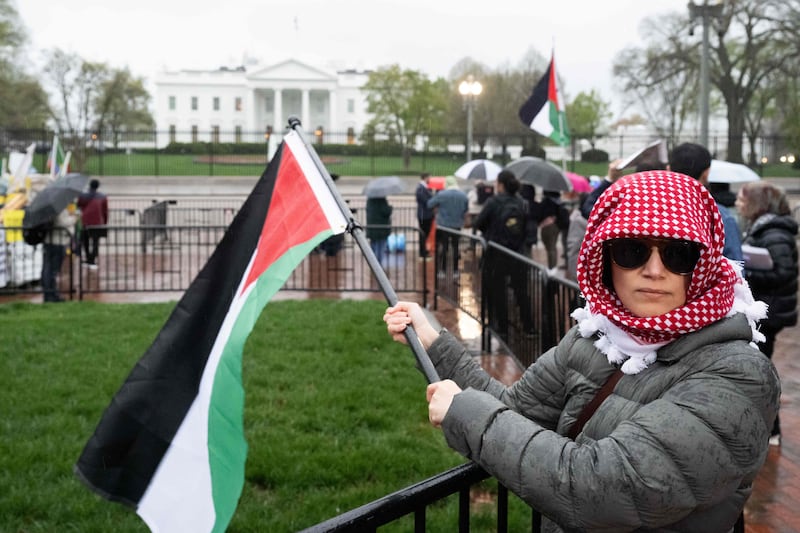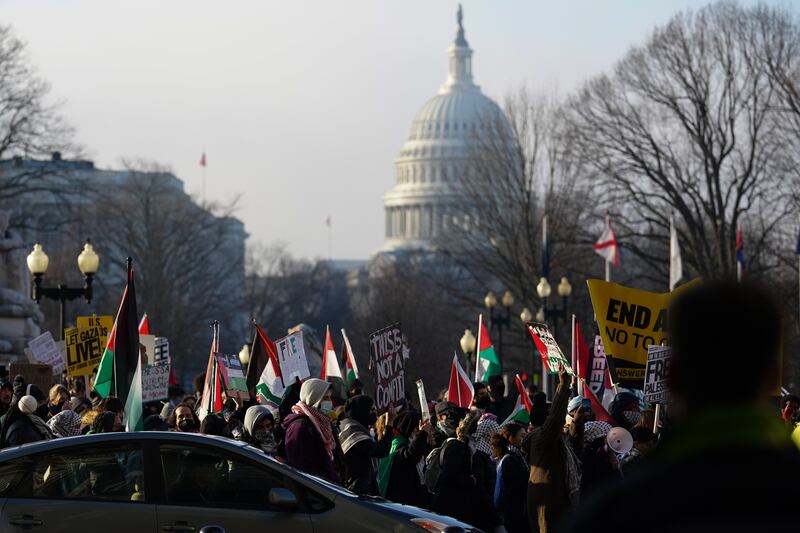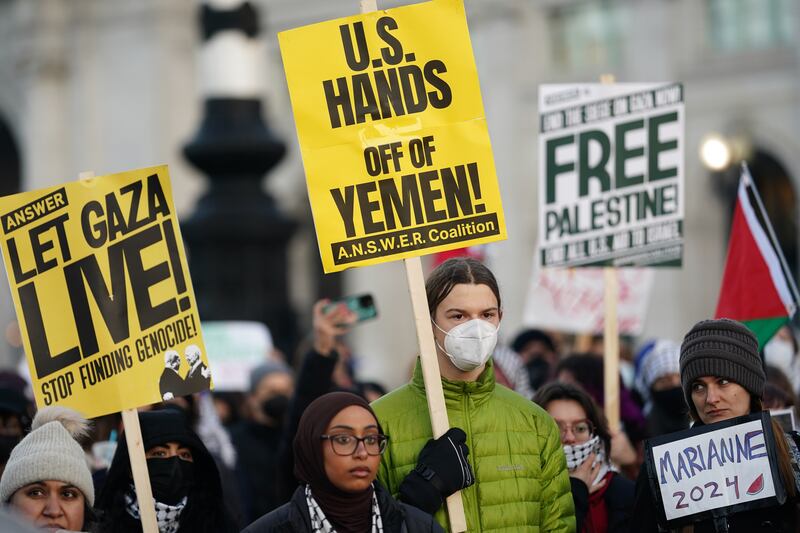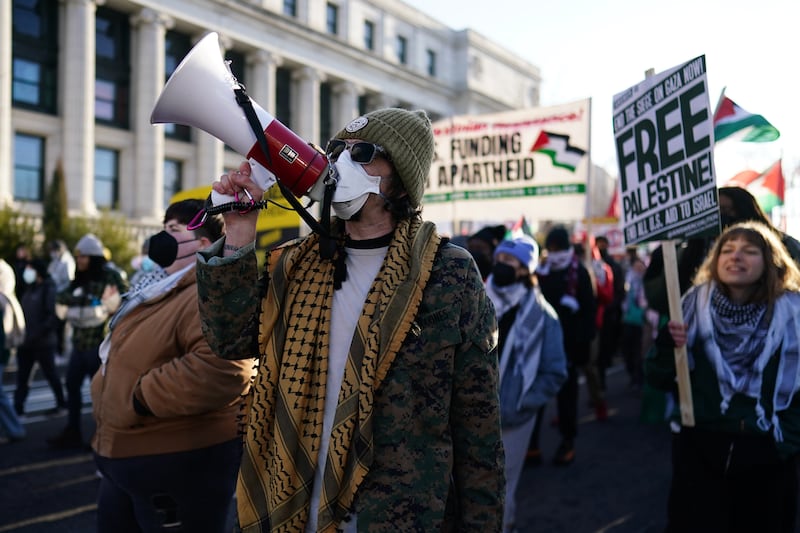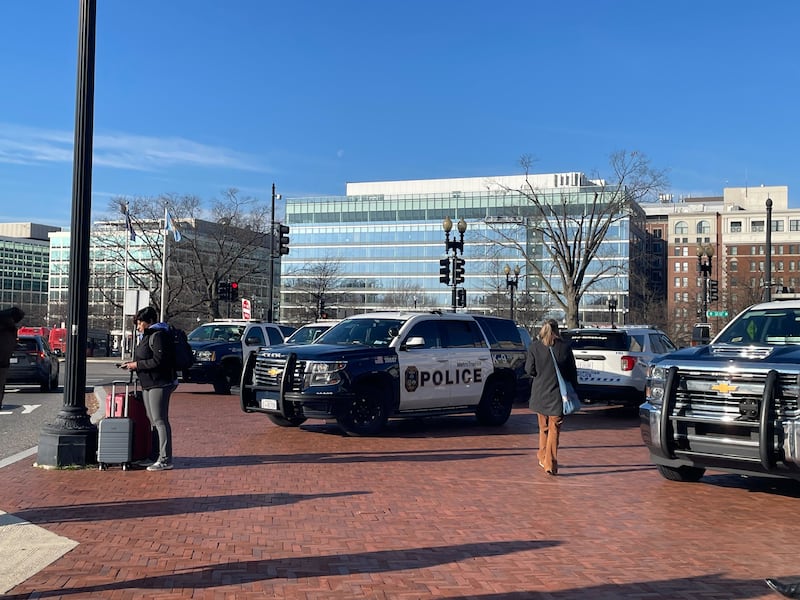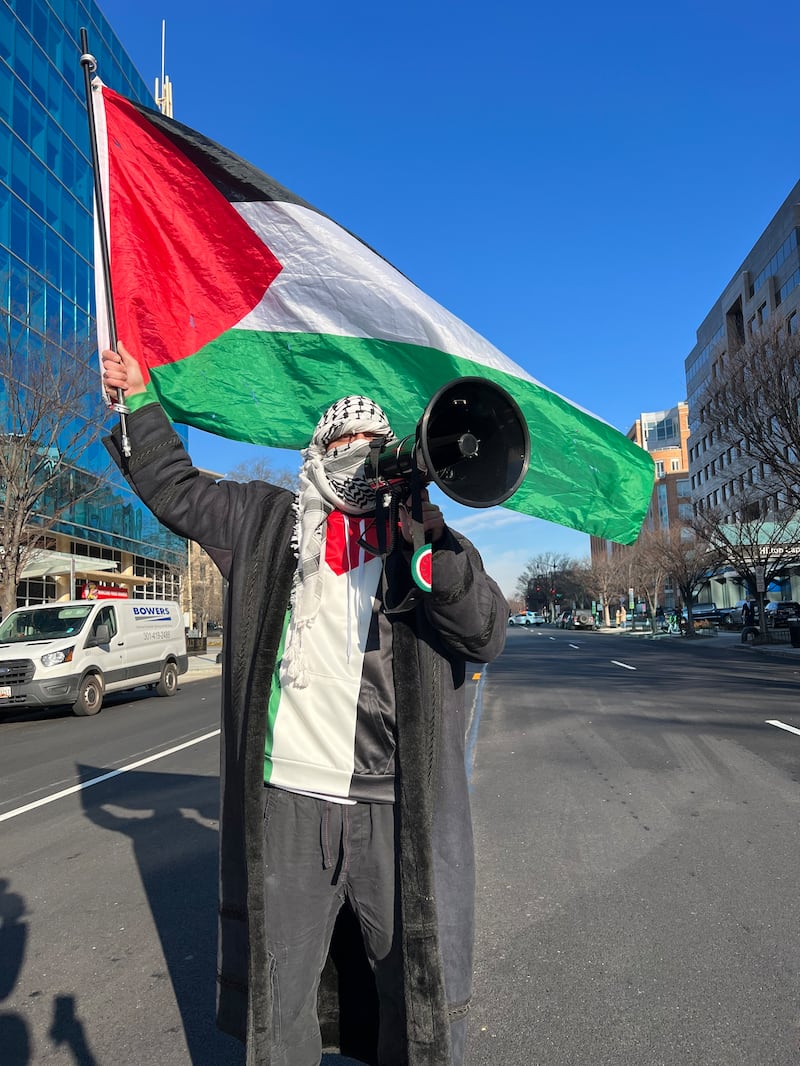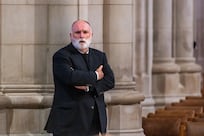Live updates: Follow the latest on Israel-Gaza
A Palestinian-American emergency doctor who worked at a hospital in Gaza earlier this year said he walked out of a meeting at the White House with President Joe Biden in protest against Washington's handling of the Israel-Gaza war.
Dr Thaer Ahmad, from Chicago, said he and other Muslims had initially been invited to the White House for an iftar meal on Tuesday along with Vice President Kamala Harris and National Security Adviser Jake Sullivan, as well as other administration officials.
But the guests asked for a meeting instead – and no food.
“We were insisting that there not be any food there,” Dr Ahmad told CNN. “It made no sense for us to break bread while talking about a famine taking place.”
After brief comments by Mr Biden, Dr Ahmad, the only Palestinian American in the room, said that he spoke first.
“I let him know that I am from a community that's really grieving and our heart is broken for what has been taking place over the last six months,” Dr Ahmad said.
“The rhetoric that has been coming out of the Biden administration, that has been coming out of the White House, it has frustrated a lot of people, especially people who are Palestinian Americans, Muslim Americans and Arab Americans. We are not satisfied.”
He walked out of the meeting soon afterwards, he said, out of respect for his community and the people who have been killed in Gaza.
Gaza protest in Washington – in pictures
Anger is growing in the Muslim and Arab-American communities over the Biden administration's refusal to support a permanent ceasefire in Gaza or to put conditions on military aid to Israel.
The UN has warned that famine is imminent in Gaza, and has accused Israel of refusing to allow sufficient humanitarian aid to enter the enclave.
The humanitarian crisis has exacerbated tension among Palestinian and Arab Americans, many of whom have relatives in Gaza.
About 33,000 Palestinians have been killed in the enclave since the start of the war, Gaza's Health Ministry says. But the US continues to supply Israel with weapons unconditionally and without making any efforts to monitor their use.
Critics of Mr Biden's approach to the conflict have expressed doubt over whether engaging with the administration will bring about a change in policy.
Several people and organisations who were invited to Tuesday's meeting said that they had declined.
Muslim and Arab-American community organisers in Michigan encouraged voters to cast “uncommitted” ballots in the Democratic primary election in February in protest against the Biden administration's handling of the conflict.
“Uncommitted” received more than 100,000 votes in Michigan. Activists in other states, including Minnesota, Illinois and Wisconsin, were later able to convince tens of thousands of voters to join the movement.
Tuesday's events were in stark contrast to last year, when the Biden administration hosted a large Eid Al Fitr celebration at the White House to mark the end of Ramadan.
For most of the past two decades, the White House has hosted annual iftars attended by Muslim community leaders, elected officials and staff members.
In 2017, no iftar was held after former president Donald Trump issued an executive order barring citizens of several Muslim-majority countries from entering the US.
Dr Ahmad said Mr Biden did not respond strongly when he announced he was leaving the meeting.
“He actually said that he understood, and I walked away.”
